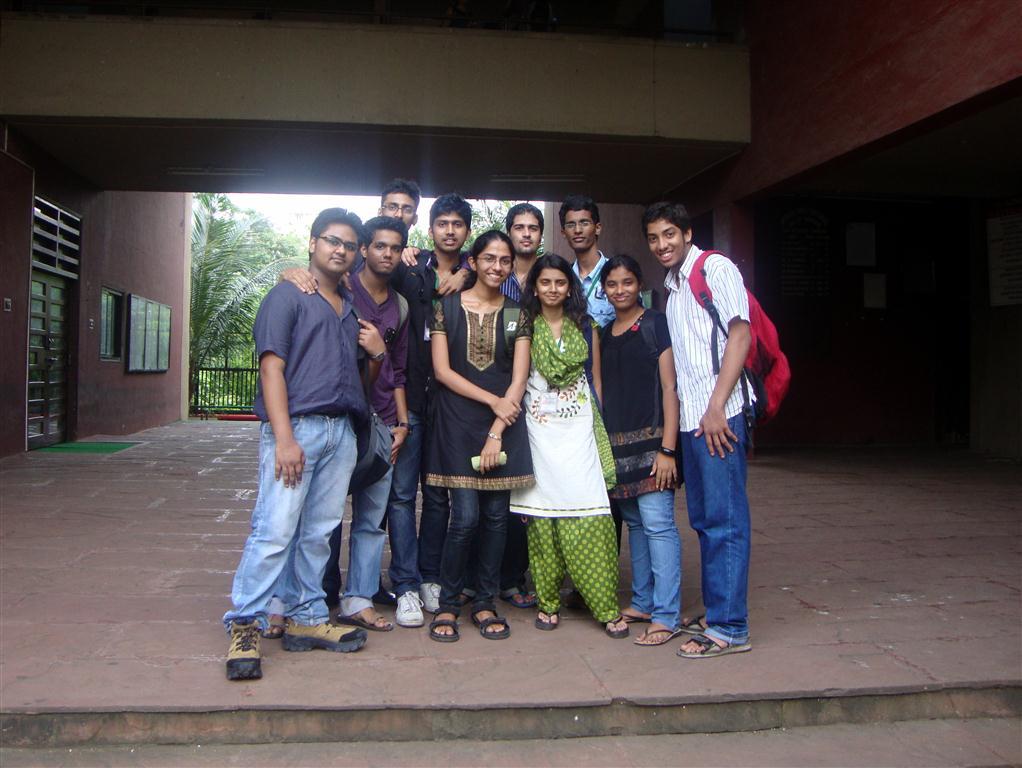A lot of people had to say a lot of things about an article that I wrote on why diploma before degree in Engineering might be a bad idea for most (in India). So, here’s a follow-up in case you still took the diploma route: a primer of sorts on how to survive the initial period of engineering degree (BE or B.Tech) after you have completed your diploma.
A friend of mine also just painfully completed three years of his life-changing four-year diploma course (which included a year of training as part of the curriculum) and he is kinda in a kettle of fish unable to cope up. This guide is for people like him.
What is the Degree Situation After Diploma?
You have just passed out of diploma and you aspire to enroll for an engineering degree course in some extremely fashionable college with decent education and faculty. SIES Graduate School of Technology in Nerul, Navi Mumbai, for instance. Mind you, every single college is different in its own way but when it comes to the quality of education and faculty and other ‘features’, things are almost the same across Mumbai. What matters is how you manage yourself and your studies while you are in college. I say this not because I have studied in different colleges, but because I have honest friends who all write or talk about them endlessly.
And you are worried about how you will cope up with a new group of students because you will be a direct second-year student. Worry not, because in no particular order, here are the things that you should worry about as well as how you can get past them…
Issues to Deal with in Your First Year of Engineering
- Quota or No Quota: The online admission process sucks. You need to choose which one university you will opt for the next three years of your life. Some options are the politically controlled University of Mumbai, the unmindful Pune University, and some other state universities like the popular ones in Chennai and New Delhi. After you get out of the selection universe (that’s a bad pun), think about your ancestral origins. If your cast certificate (get one immediately if you don’t have it; domicile and creamy layer certificates are equally important; Aadhaar card too) says SC/ST/NT/OBC or any other caste that falls in the “minority” category you need not worry at all. Colleges will come to your doorstep. If you are one of those ‘open’ caste-wala, then we are rowing the same boat (although I reached the beach in 2015). Worry not, colleges like SIES, Father Agnel’s, and K J Somaiya have minority quota for the poor ‘open’ guys which means if you are a south-Indian or a Gujarati, procuring a seat will be slightly easier in these colleges. Consider all the choices you have. Do not consult your relatives
- Scholarships: Your fees will be in the range of a few lakhs depending upon the admission criteria i.e. donation or no donation; in comparison, students who come in through the caste quota pay only a fraction of what you pay. Once you start attending the lectures, make sure you check for the websites of trusts which give scholarships. For Gujaratis, there are hundreds of community-run trusts. But we all – open folks – should be interested in the Sir Dorabji Tata Trust Scholarship, which will give you your full fees back, or at least 90% of it. Trust me, 90% people who apply for it get the cash. The good part is: you can apply every year; the bad part: you have to score above 80% aggregate. Your chances of getting the scholarship increases if you go beyond 90%
- Extra Lectures: Most colleges who want their students to do well academically will conduct extra classes. Sit for these lectures and you won’t have anything to complain
- Tuition/Classes/Mentors: I won’t suggest any of them. I have friends (who were toppers during diploma) that flunked in subjects even after giving thousands to those professors who have the most bumptious nicknames like “Don”, “Raja”, “RR” of RR classes, “Mangal”, “Hero”, and “Saviour”. They will eat your wallet and time. Many people who join these classes boast about how their professors had set the previous year’s paper and how they are sure they will get a whiff of what questions will come in the present year. They are either lying or being fooled by their tutors.[1]However, recently I have found that these claims are true. Especially professors who are tied to the University of Mumbai. They do act unscrupulously and list out questions that are bound to appear in the final board exams. People suggest you take extra classes for Mathematics, but I will recommend you to first get your basics clear by buying some reference books of first year engineering degree. They work if you study well. Also, do not rely on Techmax publications which only spoon-feed you the concepts and make you forget them when the need arises. Get hold of actual author books and things will be much different. I have read Bhargava’s Basic Electronic System two times and now years after I completed engineering, I still know how a BJT works. Or do I?
- Efforts: Do a little (10%) more than what you did during your diploma times. That ten percent will give rise to about forty percent in degree, which is the minimum passing mark
- Teacher’s Pet: This doesn’t work in degree. Teachers already have their pets, and diploma students are considered aliens. Your best bet is to eye a new-comer professor. He/She will support you like you will support him. And if he/she talks your mother’s tongue, bingo!

- The Student Council: Try and join it. People (both teachers and students) will know you and soon, things will be nice and easy. This is by far the best thing to do in order to survive the initial period of degree after diploma in engineering. Because even if you cannot fare well in studies, these extracurricular activities will keep you going. After all, college life should be a mix of studies and fun.[2]As suggested by a close friend Sushanth Nair, it will take more than the student council to become popular in college. You will have to be lively and extremely social. You should know people, and above that, know how to interact with them. You also need not join a council to be popular among the people. Just skip the lectures and hang out around the canteen patting cats or dogs. If people notice you, bingo!
I won’t stretch this because I don’t have the power to turn an introvert into an extrovert. There’s one more soft rule that you can follow in your first few weeks in engineering degree: talk to as many people as you can and build healthy relationships. This could be with your classmates, college mates, professors, stationery shopkeepers, chaiwallas, etc. The more people you know the better you will swim out of your engineering course.
All I can say is, everyone can pull this off if they believe they really want to excel in this field. Concentration is key. If something doesn’t seem right, talk about it with your family. Or girlfriend. Or boyfriend. And then maybe change your career path. It is the 21st century and you don’t have to stick to a course if you don’t feel like it. TN.
Featured image courtesy: @rizsam (Unsplash)
Update: Copyedited; revised. (31 January 2019)
Update #2: Copyedited; removed stereotypes related to the caste system; added images. (19 September 2019)
Footnotes

5 responses to “How to Survive the Initial Days Of Degree After Diploma?”
[…] topics to get a brief idea: Article 1, Article 2, Article 3, Article 4, Article 5, Article 6, Article 7, Article […]
[…] have been ceremoniously conferred an academic qualification twice; a diploma in 2012 and most recently a degree, both in the same sphere of Engineering. The feeling was great, of […]
[…] initial years of my diploma were when I first started writing. Thanks to the internet, I was free to write and publish anything […]
[…] sink into ennui-ridden desolation. Paranoia will take time, but history shows that soon you will find solace in other Diploma students from different college and/or […]
[…] exam experience took me back to my diploma and degree days, as I saw myself mimicking my preparation and writing strategy. I have always depended on current […]